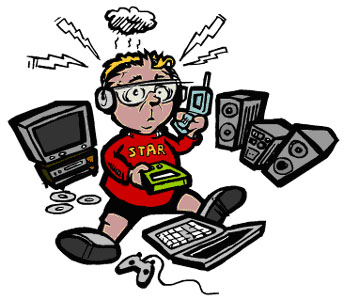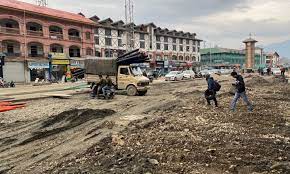
Kashmiri Society grapples with the Negative impacts of Modernization
In our culture, the word “modern” is used to describe a variety of features. Everyone uses it, regardless of their understanding of its historical significance and meaning. In actuality, this word has lost its meaning in Kashmiri society. Does modernity actually mean what our culture uses it for? Our society generally associates it with certain personality traits. Who adopts the clothing, language, hairdo, and popular culture of the main metropolis or any other metropolis in the world? Modernity is defined as city culture, whether it takes the form of a material or non-material culture, as we learn through socialization processes from an early age. We perceive modernity as a result of this contrived socialization process without understanding its purpose and guiding ideas, which is hazardous to ourselves and to our society as a whole.
Its true meaning is easy to comprehend. It transports us back to the 17th and 18th centuries in European history. Before other nations in the world, nations like Italy, France, and England had already experienced this modernism. Before modernity, or more specifically before the 17th and 18th centuries, European society was in a Dark Age. Before the aforementioned time period, European society and its institutions were ruled by either religion (the pope) or monarchy, and the dominant ideologies in society were dogma, blind faith, and superstition thinking. Freedom, equality, liberty, fraternity, and justice were not present. The upper class was enjoying all varieties of Different systems, like feudalism, the estate system, and others, which were used to take advantage of advantages and lower classes. Instead, there were more people from the lower classes than from the upper classes.
Aslo Read | Kashmir: The Rising Star of Destination Weddings
Later, some thinkers began to challenge authority figures and religion. This ultimately sparked a number of movements and revolutions in European society during the 17th and 18th centuries under the leadership of philosophers like Montesquieu, John Locke, Voltaire, Rousseau, René Descartes, and others, ultimately changing the continent’s social structure from one based on irrational thought to one based on rational thought. This string of uprisings and movements got their start during the Italian Renaissance, which Rene Descartes led from the 14th to the 17th century. The Italian Renaissance was a cultural movement that bridged the Middle Ages and the Modern Era. This time frame was marketed as the revival of classical literature, philosophy, and art.
Then another stroke occurs, which Rene Descartes refers to as the Enlightenment period. He was a French rationalist philosopher. The Logic/Age of Reason is what defines this time period. Philosophical thought in Europe throughout the 18th century saw substantial alterations as a result of this period of intellectual development. Criticism, freedom of thought, universalism, progress, empiricism, science over dogma, blind faith and superstition, and irrational thinking were all pushed to the limit at this time. Charles Montesquieu and Jean-Jacques Rousseau were among the thinkers active during the time. Catholic counter-revolutionary doctrine, Louis de Boland, and Joseph de Maître undoubtedly opposed such progressive views. Religion during this time was mostly questioned for its illogical interpretations and representations. Thinkers of the Enlightenment conventional ideals were rejected because of their irrationality.
Do Watch | Kya Karie Korimol With Kashur Wanvun – CokeStudio
Then, in 1789, the French Revolution occurred. As a result, France’s political system transitioned from monarchy to democracy. With this revolution, the world was introduced to the concepts of liberty, equality, fraternity, women’s rights, and freedom. Most of the world’s constitutions are based on these principles, and people are freed from exploitation. The Industrial Revolution in England followed. This altered the economic landscape of all of European society, and England in particular. Western society went from an illogical society to a logical society as a result of the aforementioned revolutions and movements. Because of this, modernism is the application of rationality. Yes, modernization has also brought about undesirable changes in European society. But the Positive ideas and principles that we adhere to now are a result of this European modernity.
This term is being used by more and more individuals in Kashmiri society to describe certain traits in persons. In contrast to rural areas, urban areas are where this word is more prevalent and used. What modernity means in Kashmiri society is no less than Dipankar Gupta’s concept of “Mistaken Modernity”. The people of Kashmiri society have a different understanding of modernity, adopting higher-class fashion only in terms of clothing, hairstyles, and eating habits rather than in terms of thoughts or intellectual pursuits based on logic and rationality. The person is modern or is adhering to modernity in our society if their hairstyle and clothing choices reflect a higher social class.
By Adil Hussain Bhat
adil712366@gmail.com

